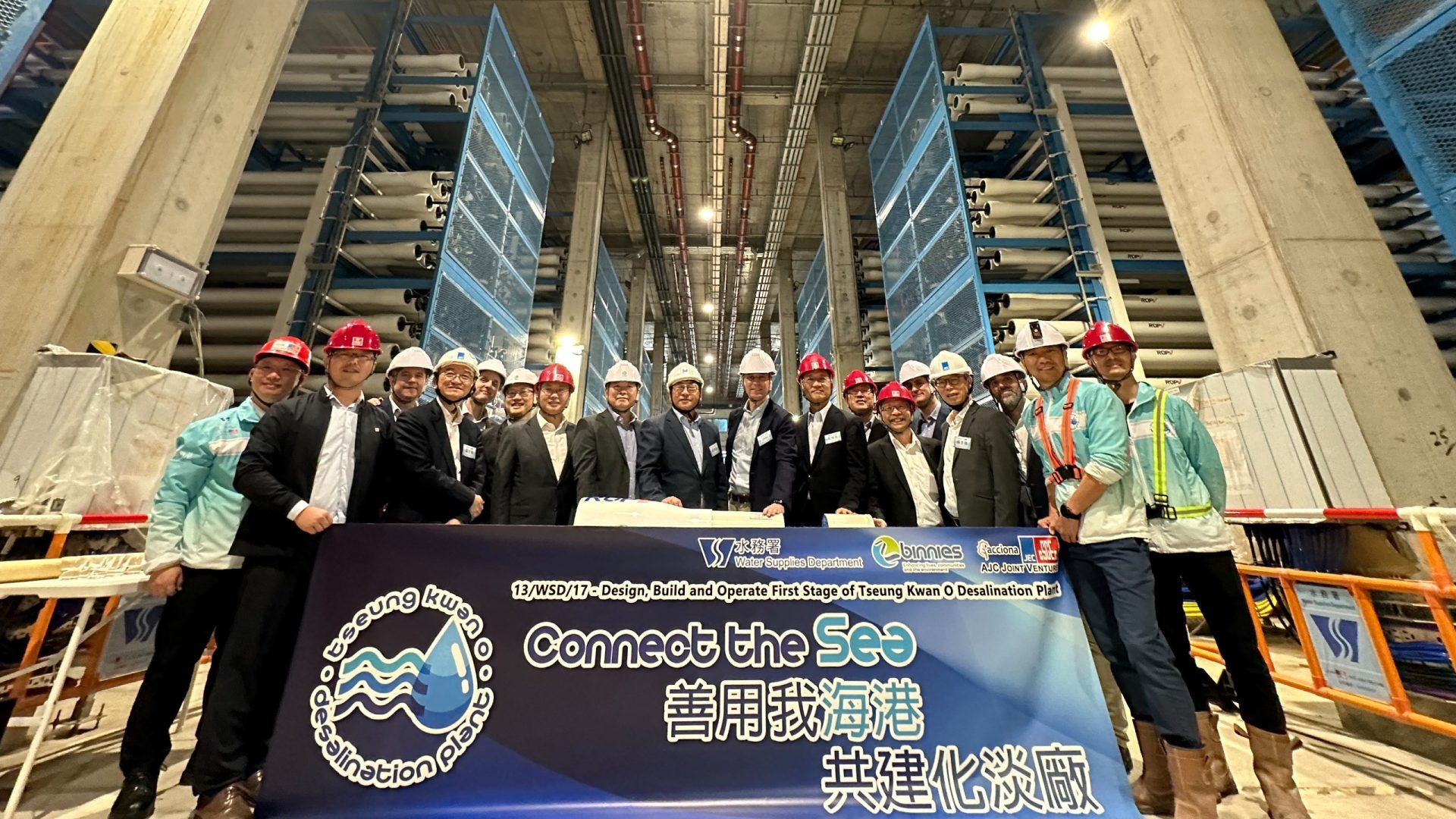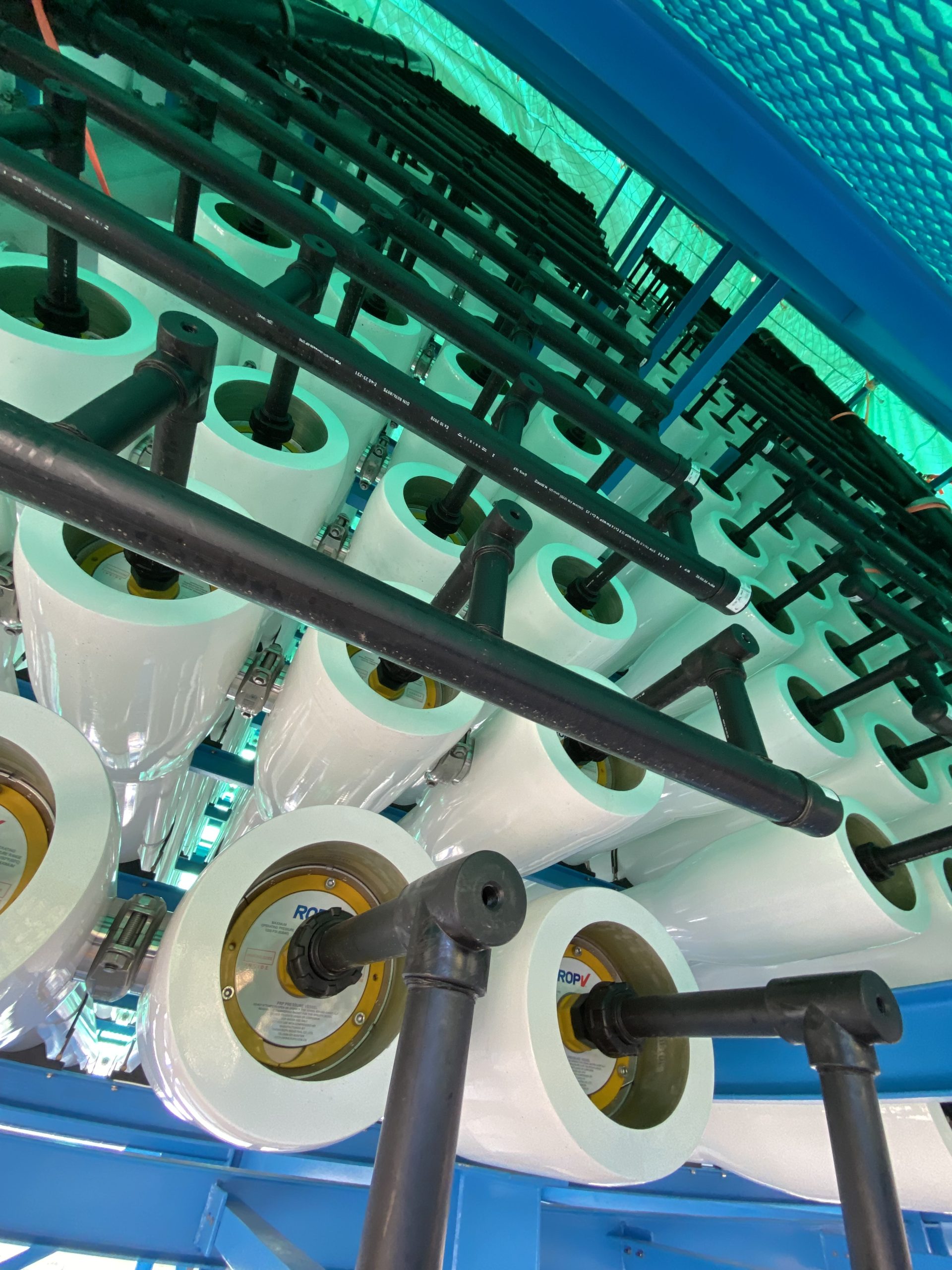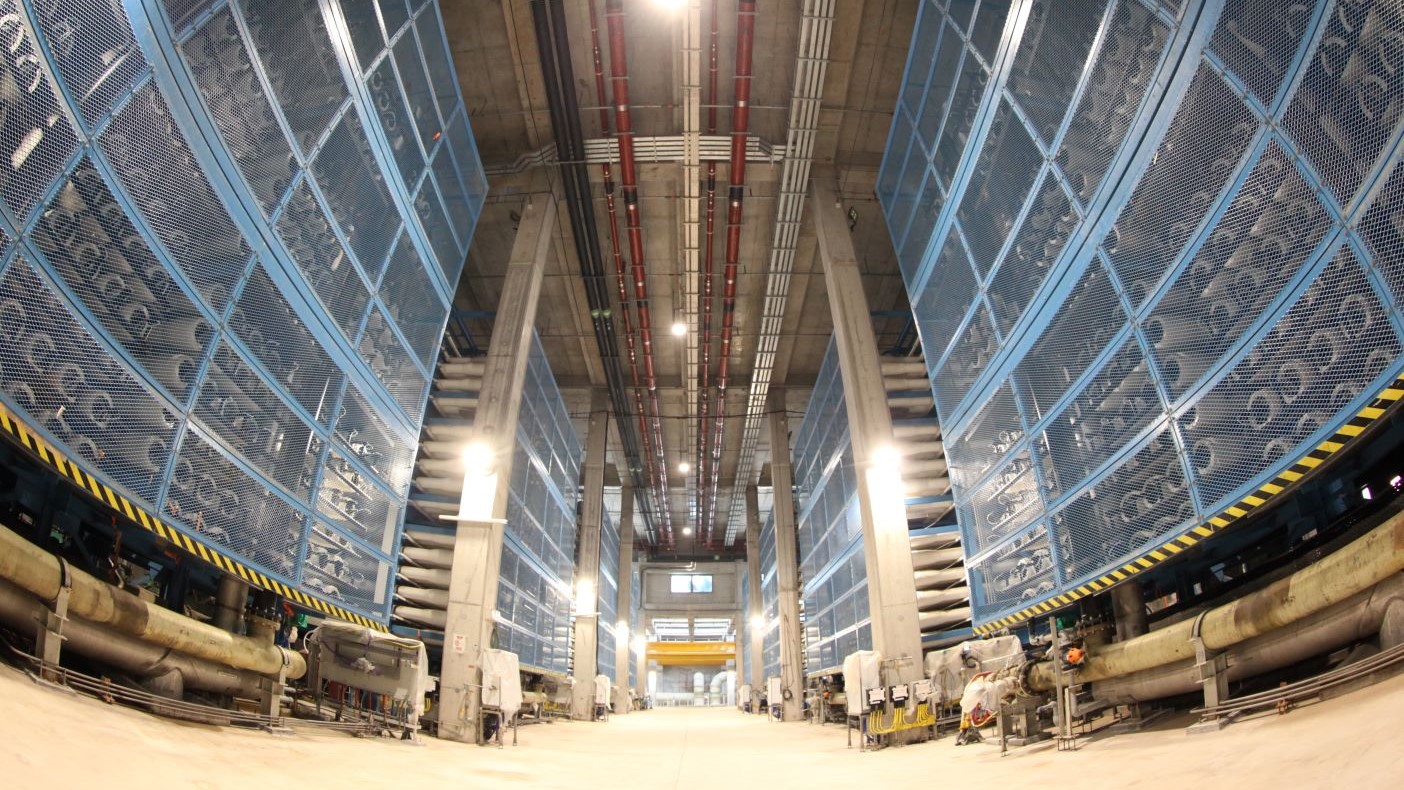The new Tseung Kwan O desalination plant is the first to use reverse osmosis technology in Hong Kong. Construction of the first stage plant began in December 2019, and four years later it began supplying fresh water to homes throughout the territories.
The Water Supplies Department (WSD) of the Government of the Hong Kong Special Administrative Region (HKSAR) engaged Binnies, an RSK Group company, to deliver a feasibility study for the project in December 2012. Subsequently, the Binnies Hong Kong team provided investigation, design and construction supervision for the first stage of the project up to its commissioning on 22 December 2023.
Binnies Hong Kong Managing Director Andy Kwok said:
“Commissioning the first stage of the Tseung Kwan O desalination plant means it is now delivering drinking water to 137,000 homes across Hong Kong and represents a significant step towards a reliable climate-proof and sustainable water supply. This is critical for Hong Kong as the region faces a number of key challenges, including increasing demand as the population grows, and we are now seeing more erratic rain patterns and severe drought exacerbated by climate change. With the plant in action, we have a much more stable and safe fresh water resource.
“This first of the two-staged plant will provide fresh water to a population of around 370,000 and has a production capacity of 135 million litres per day, representing about 5% of Hong Kong’s daily demand. This commissioning of the plant marks a significant milestone for us as the project team because we have achieved our goal of supporting the WSD in diversifying its drinking water supplies with a new ‘tap’ that is sustainable and, importantly, climate resilient.”
As detailed by the WSD, the Tseung Kwan O project is a key initiative in the government’s water management strategy and route map to achieve water sustainability and security while supporting development in Hong Kong. Adopting seawater desalination supports these objectives and provides a reliable supply of potable water that is not susceptible to the effects of climate change.
Andy added: “The plant is the first of its kind in Hong Kong to use reverse osmosis technology. This approach to desalination is the most energy efficient and cost-effective. When running at 100% capacity, the plant will take around two hours to desalinate water from the point of intake to product. The plant can draw around 340 million litres of seawater per day to produce 135 million litres of fresh water. The Binnies team was able to draw on expertise from colleagues across the business in the UK and Singapore to support the delivery of the works.
“Over the past 10 years, our project team from 14 disciplines, including civil, structural, geotechnical, mechanical and electrical engineering; instrumentation control and process; environmental, architectural and landscape design; public engagement, cost estimation, permitting and regulatory compliance; and green building certification have contributed to this project. We take pride in being one of the WSD’s most trusted partners.”
Desalination is a highly energy-intensive process, and attention has been given to introducing measures to reduce raw resource use and to prevent waste. During the plant’s operation, solar panels will be used to provide renewable energy, resulting in a 16.2% reduction in grid-supplied energy for building services. Water recycling and reuse processes will also reduce fresh water consumption by 36.6%, and installed water saving devices will reduce fresh water use by 53%. Rainwater harvesting systems have also been installed to reduce water consumed for irrigation purposes by 67%.
The WSD has started the preliminary design for the second stage of the plant, and the adjacent site is also earmarked for future expansion, with a water production capacity that will meet around 10% of the overall fresh water demand in Hong Kong.





